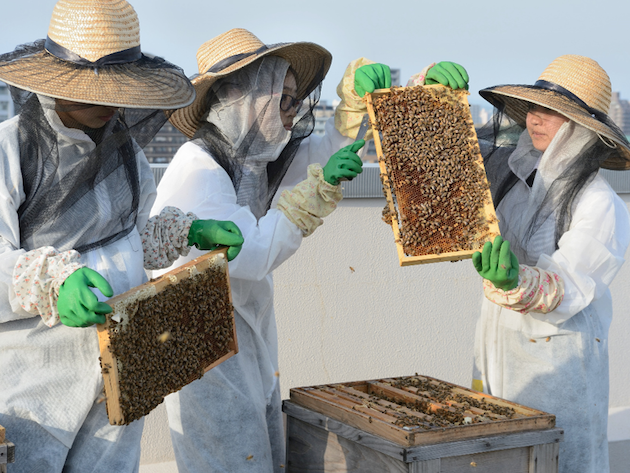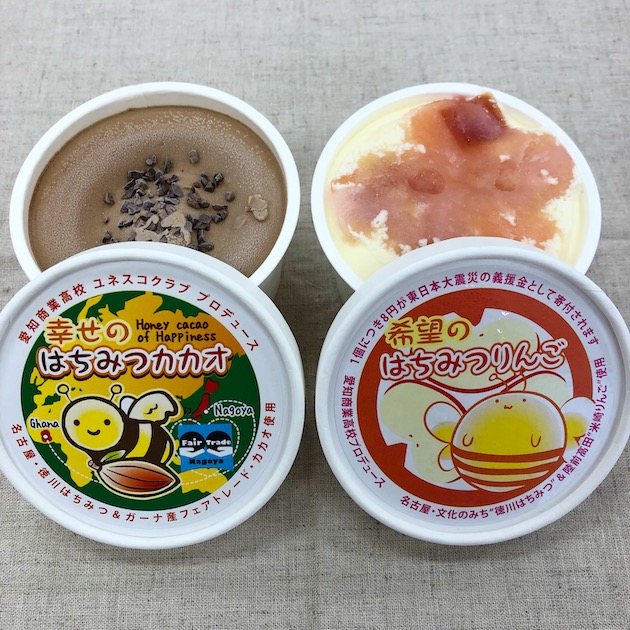eat
Connecting Bumble Bees and the Future, Creating a Sustainable Town – The Nagoya Cultural Path Bumble Bee Project
Aichi Commercial High School Unesco Club
https://www.instagram.com/aisho_honeygirls/
In order to help build a sustainable community, the Aichi Commercial High School Unesco Club launched the “Nagoya Cultural Path Bumble Bee Project” and began urban beekeeping on the roof top of the high school. With a focus on bumble bees, the students are undertaking a wide range of activities including the development of products and initiatives that attempt to achieve the SDGs.
Nagoya, their home city, has experience numerous events that helped them become more tuned in to sustainability such as the “State of Waste Emergency” in 1999, the “Expo Aichi 2005,” and the “COP 10” in 2010.
Wanting to contribute from the perspective of town building, the students launched the “Nagoya Cultural Path Bumble Bee Project” in June 2011 and began an urban beekeeping field test on the rooftop of their school. This project aims to help create a sustainable town along the Cultural Path, an area of Nagoya near the school where much of Nagoya’s historical heritage still remains. Bumble bees play an integral role in biodiversity. So, by helping them thrive, the students hope to create opportunities to improve the natural environment in Nagoya and ultimately the global environment. The honey gathered is sold under the trademark, “Tokugawa Honey,” which hints at the history and culture of the region that has ties to the Owari-Tokugawa family.
Not only have the students developed Tokugawa Honey as a regional brand, they have developed other products that contribute to society such as a signature product for the Rikuzentakata City, Iwate Prefecture, a region affected by the Great East Japan Earthquake that Nagoya City wholeheartedly supports, and ice cream that highlights the global challenges faced through fair trade. A part of the proceeds from these products are donated, and through the act of eating, consuming, they give people a chance to think about biodiversity and other social challenges. Because these products offer a way to address challenges by buying, eating, and supporting, these products are being sold on an ongoing basis. Moreover, the students are developing menus in collaboration with regional stores, and have established a community based on honey, nature’s seasonal blessing.
In addition, they organize events that encourage people to think about biodiversity and fair trade. These regularly held events have evolved over time to incorporate, for example SDGs. Furthermore, the students take part in various events organized in the city to talk about their activities on stage, to create opportunities to make biodiversity more mainstream, and to think about social challenges. They will continue to work with the community, companies, local governments, and universities to achieve the goals they’ve set out.
更新日:2019.12.26 ※記事の内容は投稿当時のものです











